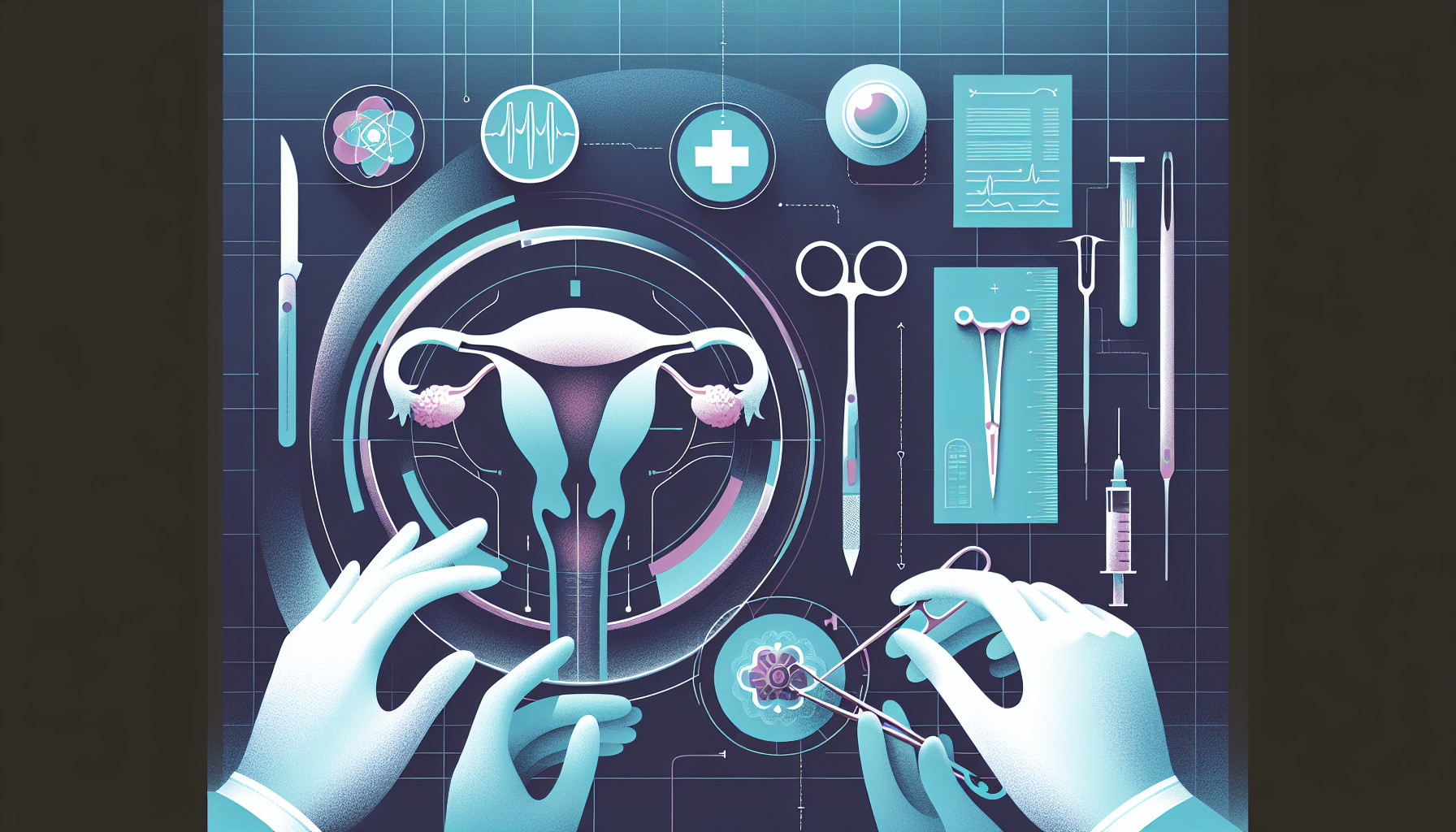Our Summary
In simple terms, this research paper is about a study that was conducted to understand the impact of treatment for a condition known as cervical intraepithelial neoplasia (CIN) on pregnancy outcomes. This condition is a potentially pre-cancerous change in the cells in the cervix.
The researchers looked at various existing studies, involving over 6 million women, to find out whether treatment for CIN affected the likelihood of premature birth and other pregnancy complications.
The findings showed that women who received treatment for CIN were more likely to give birth prematurely. The risk was even higher for women who had undergone more than one treatment or where the treatment involved removing or ablating more tissue.
The study also found that certain complications like premature rupture of the membranes, inflammation of the fetal membranes due to a bacterial infection, low birth weight, the need for neonatal intensive care, and perinatal mortality were more likely in women who had been treated for CIN.
The research concluded that women with CIN have a higher baseline risk for premature birth, and that treatment for the condition further increases that risk. The more severe the treatment, the higher the risk of complications.
FAQs
- What is cervical intraepithelial neoplasia (CIN) and how does it affect pregnancy outcomes?
- Does treatment for CIN increase the likelihood of premature birth and other pregnancy complications?
- What are the potential risks and complications for pregnancies following treatment for CIN?
Doctor’s Tip
A doctor might advise a patient undergoing uterine ablation to discuss their future pregnancy plans with their healthcare provider. They may recommend considering alternative methods of contraception to prevent pregnancy in the future, as the procedure can increase the risk of complications during pregnancy. It is important for the patient to be fully informed about the potential risks and discuss any concerns with their doctor before undergoing the procedure.
Suitable For
Therefore, patients who have been diagnosed with CIN and are considering treatment options such as uterine ablation should be aware of the potential impact on their future pregnancies. It is important for healthcare providers to discuss these risks with patients and carefully consider the best course of action based on each individual’s unique situation.
Overall, patients who are recommended uterine ablation are typically those who have not responded to other treatments for conditions such as heavy menstrual bleeding or abnormal uterine bleeding. Additionally, patients who are not planning to have children in the future may also be good candidates for uterine ablation. However, it is important for patients to understand the potential risks and complications associated with the procedure, especially if they are of childbearing age or desire future pregnancies.
Timeline
Before uterine ablation:
- Patient may experience heavy or irregular menstrual bleeding.
- Patient may have tried other treatments such as medication or hormonal therapy without success.
- Patient undergoes a consultation with a healthcare provider to discuss the option of uterine ablation.
- Patient undergoes preoperative testing to ensure they are a suitable candidate for the procedure.
After uterine ablation:
- Patient may experience cramping and discomfort for a few days after the procedure.
- Patient may have some vaginal discharge as the body heals.
- Patient should avoid heavy lifting and strenuous exercise for a certain period of time.
- Patient may experience a decrease in menstrual bleeding or may stop having periods altogether.
- Patient may have a follow-up appointment with their healthcare provider to monitor their recovery and discuss any concerns.
What to Ask Your Doctor
Some questions a patient should ask their doctor about uterine ablation include:
- What is uterine ablation and how does it work?
- What are the potential risks and side effects of uterine ablation?
- How effective is uterine ablation in treating heavy menstrual bleeding?
- Will uterine ablation affect my fertility or ability to have children in the future?
- What is the recovery process like after uterine ablation?
- Are there any long-term effects or complications associated with uterine ablation?
- What are the chances of my heavy menstrual bleeding returning after uterine ablation?
- Are there any alternative treatments or procedures that I should consider before opting for uterine ablation?
- How often will I need follow-up appointments after uterine ablation?
- Are there any lifestyle changes or precautions I should take after undergoing uterine ablation?
Reference
Authors: Kyrgiou M, Athanasiou A, Paraskevaidi M, Mitra A, Kalliala I, Martin-Hirsch P, Arbyn M, Bennett P, Paraskevaidis E. Journal: BMJ. 2016 Jul 28;354:i3633. doi: 10.1136/bmj.i3633. PMID: 27469988
